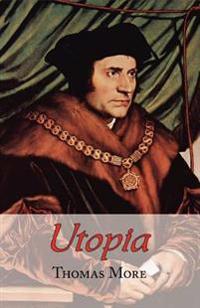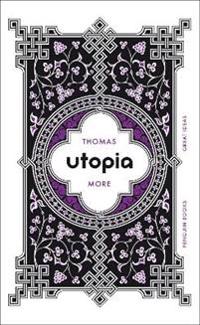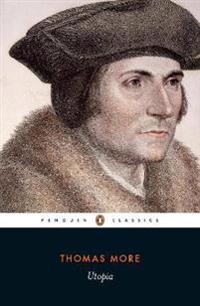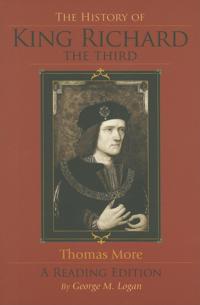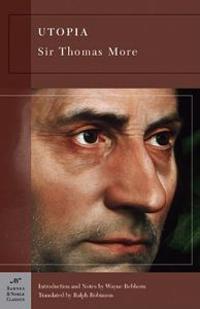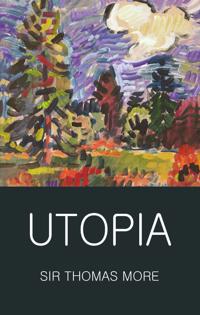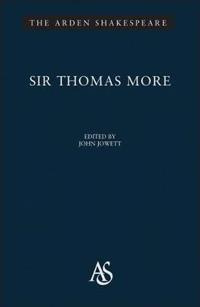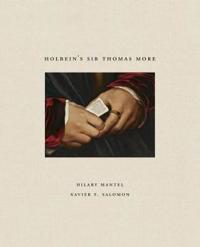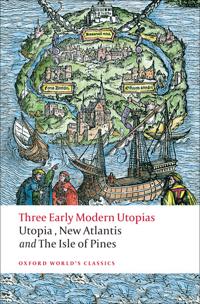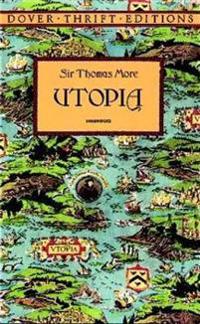More: Utopia (Pocket)
avSir Thomas More
ISBN: 9780521525404 - UTGIVEN: 2002-09-30This revision incorporates the many refinements to the translation of Utopia undertaken in 1995. George Logan has also updated the editorial commentary and introduction to take into account the scholarship published since the first Cambridge Texts edition of Utopia appeared in 1989. This edition is [...]
Utopia (Häftad)
avSir Thomas More
ISBN: 9780141043692 - UTGIVEN: 200908In "Utopia" Thomas More painted a fantastical picture of a distant island where society is perfected and people live in harmony, yet its title means 'no place', and More's hugely influential work was ultimately an attack on his own corrupt, dangerous times, and on the failings of humanity. Throughou[...]
Utopia (Häftad)
avSir Thomas More
ISBN: 9780141442327 - UTGIVEN: 201208'Even if you can't eradicate harmful ideas or remedy established evils, there's no reason to turn your back on the body politic'. In "Utopia", Thomas More gives us a traveller's account of a newly-discovered island where the inhabitants enjoy a social order based on natural reason and justice, and h[...]
The History of King Richard the Third (Häftad)
avSir Thomas More
ISBN: 9780253217998 - UTGIVEN: 2006-02"The History of King Richard the Third" is Thomas More's English masterpiece. With the help of Shakespeare, whose Richard the Third took More's work as its principal model, the History determined the historical reputation of an English king and spawned a seemingly endless controversy about the justn[...]
Memoirs of Sir Thomas More, with a New Translation of His Utopia, His History of King Richard III, and His Latin Poems Volume 2
ISBN: 9781347160404 - UTGIVEN: 2015-12Utopia (Häftad)
avSir Thomas More
ISBN: 9781593082444 - UTGIVEN: 201303"Utopia," by Sir Thomas More, is part of the "Barnes & Noble Classics"" "series, which offers quality editions at affordable prices to the student and the general reader, including new scholarship, thoughtful design, and pages of carefully crafted extras. Here are some of the remarkable features of [...]
Utopia (Storpocket)
avSir Thomas More
ISBN: 9781853264740 - UTGIVEN: 199605More's Utopia is a complex, innovative and penetrating contribution to political thought, culminating in the famous 'description' of the Utopians, who live according to the principles of natural law, but are receptive to Christian teachings, who hold all possessions in common, and view gold as worth[...]
Utopia (Inbunden)
avSir Thomas More
ISBN: 9781857150612 - UTGIVEN: 1992-04First published in 1516, Utopia depicts an imaginary society free of private property, sexual discrimination and religious intolerance. Its radical humanism has had a dramatic effect on modern history and the challenge of its vision is as persistent today as it was in the Renaissance.[...]
Sir Thomas More
ISBN: 9781904271475 - UTGIVEN: 2011-05This edition of Sir Thomas More is the first to bring the play into the context of a major Shakespeare series, to provide a substantial critical analysis, and to offer a comprehensive modern stage history. The introduction deals with issues such as the strange involvement of the anti-Catholic spy-hu[...]
Sir Thomas More (Pocket)
avWilliam Shakespeare
ISBN: 9781904271482 - UTGIVEN: 2011-02-28Sir Thomas More deals with matters so controversial that it may never have reached performance on stage. A compelling play of riots and religious politics, it is also an intriguing document of what could, and could not, be articulated in the early modern public theatre.[...]
Utopia (Häftad)
avSir Thomas More
ISBN: 9781907523915 - UTGIVEN: 2011-02Thomas More coined the word 'Utopia' (meaning 'Noplace') to emphasise his conviction that humanity had never yet attained to the ideal society. Writing in 1516, More attempted to describe the basis of just such a society, founded upon the principles of rationality and equality. But More's vision is [...]
Holbein's Sir Thomas More
ISBN: 9781907804915 - UTGIVEN: 2018-05Hans Holbein's famous portrayal of Sir Thomas More is one of the artist's greatest and most popular portraits. In the opening piece of this appealing new volume, "A Letter to Thomas More, Knight," award-winning author Hilary Mantel vividly imagines the background to the creation of this extraordinar[...]
Three Early Modern Utopias (Pocket)
avThomas, Sir, Saint More, Francis Bacon, Henry Neville
ISBN: 9780199537990 - UTGIVEN: 200901Thomas More: Utopia/ Francis Bacon: New Atlantis/Henry Neville: The Isle of Pines With the publication of Utopia (1516), Thomas More introduced into the English language not only a new word, but a new way of thinking about the gulf between what ought to be and what is. His Utopia is at once a scath[...]
Utopia (Pocket)
avThomas, Sir, Saint More
ISBN: 9780486295831 - UTGIVEN: 19970716th-century classic by English ecclesiastic and scholar envisioned a tolerant, patriarchal island kingdom free of private property, violence, bloodshed and vice. Forerunner of many later attempts.
[...]

